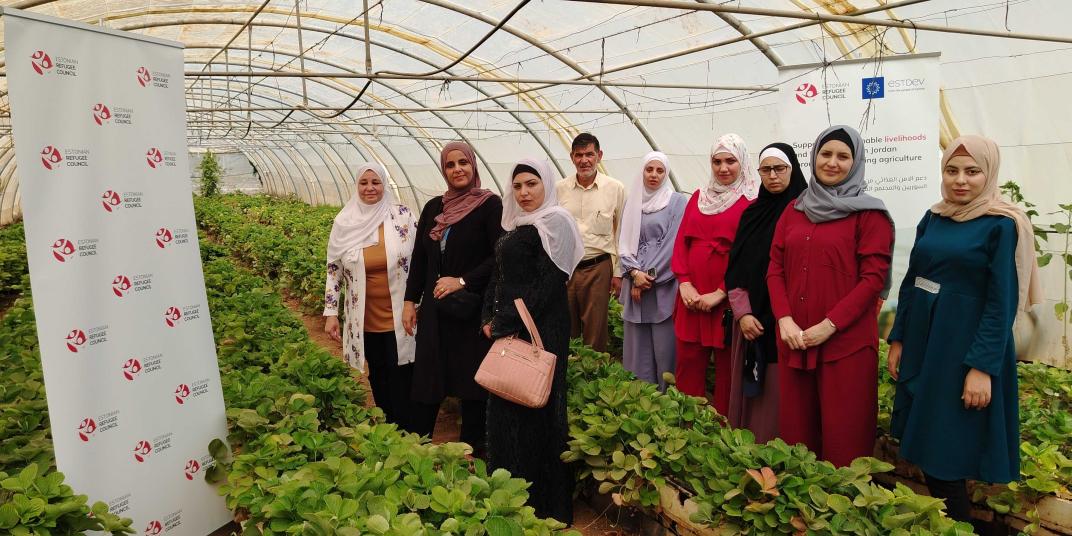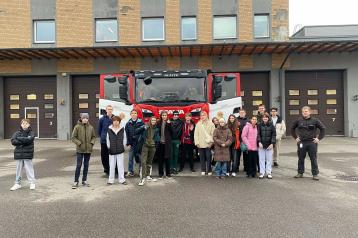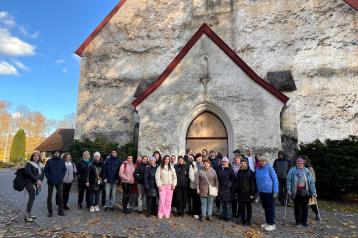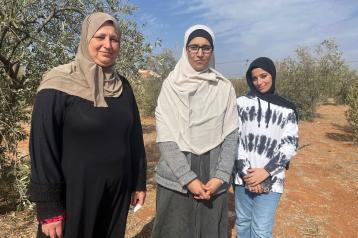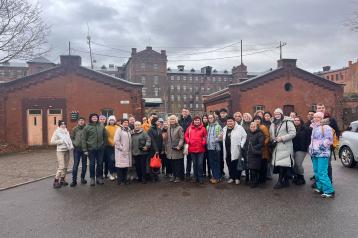Countries
The Estonian Refugee Council supports the self-sufficiency of women-led households in vulnerable situations in Jordan through a training programme that provides new knowledge and practical skills for growing food and generating income. This June, the first ten women from Syria completed hydroponics training and will now be able to deliver similar training within their communities, thereby increasing knowledge of water-efficient agriculture across the region.
Jordan faces serious water shortages, exacerbated by natural conditions, population growth, and climate change. In such circumstances, hydroponics offers an effective solution as it conserves water and enables food production without soil. This method uses up to 90 per cent less water, allows cultivation on small plots, and ensures stable yields. Hydroponics helps protect the environment, reduces dependence on weather conditions, and offers both Syrian refugees in Jordan and local residents in vulnerable situations the opportunity to grow food for their families or sell produce to earn an income.
Hydroponics offers a path to self-reliance
For people who have had to leave their homes, adapting to a new environment can be very challenging, as they must adjust to new conditions, culture, and opportunities. Finding work and building self-sufficiency can be difficult, especially if they lack the necessary skills or knowledge. In such situations, it is important to provide support and practical opportunities that help people acquire new skills and create sustainable sources of income.
The Estonian Refugee Council’s training programme equips participants with essential agricultural knowledge, develops farming skills, and motivates them to earn a livelihood independently. Over the course of this and the upcoming year, the Estonian Refugee Council will train 40 women, 12 of whom will then receive support to establish a hydroponic greenhouse on their own land. To date, 100 women have already participated in our training sessions. The greenhouses allow families to grow food for themselves or earn a living by selling the produce to others.
In addition, we are training four women-led community organisations in hydroponics in order to increase knowledge of water-efficient farming methods across the region. So far, the first ten women have completed the training and acquired the necessary knowledge and skills to deliver similar training within their own communities.
The Estonian Refugee Council’s activities in Jordan are supported by ESTDEV – the Estonian Centre for International Development.
